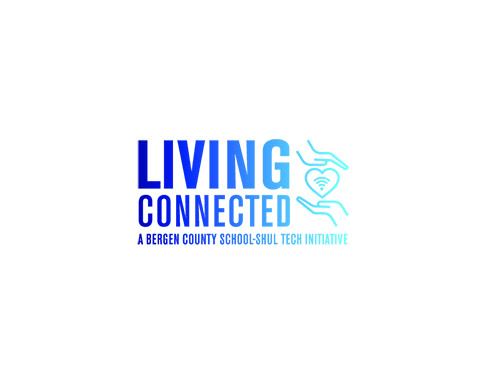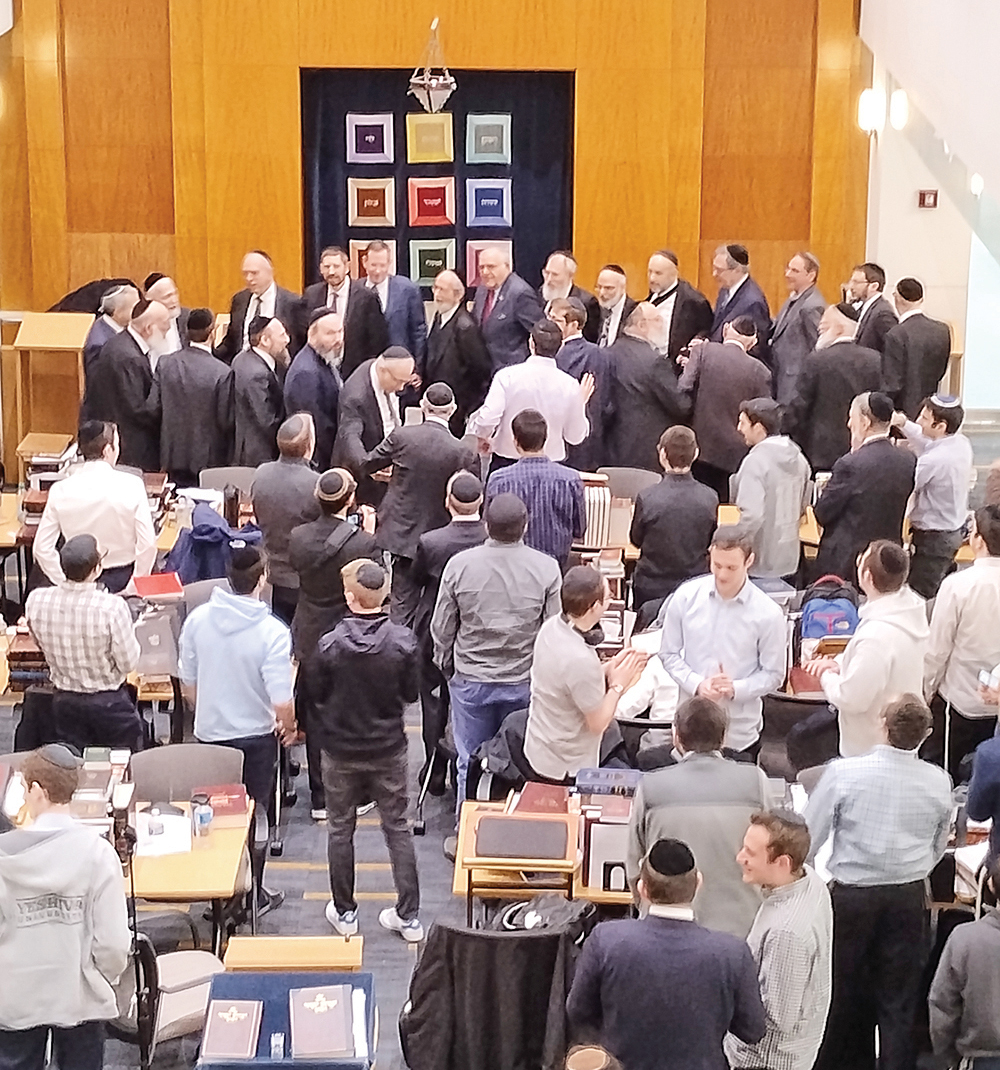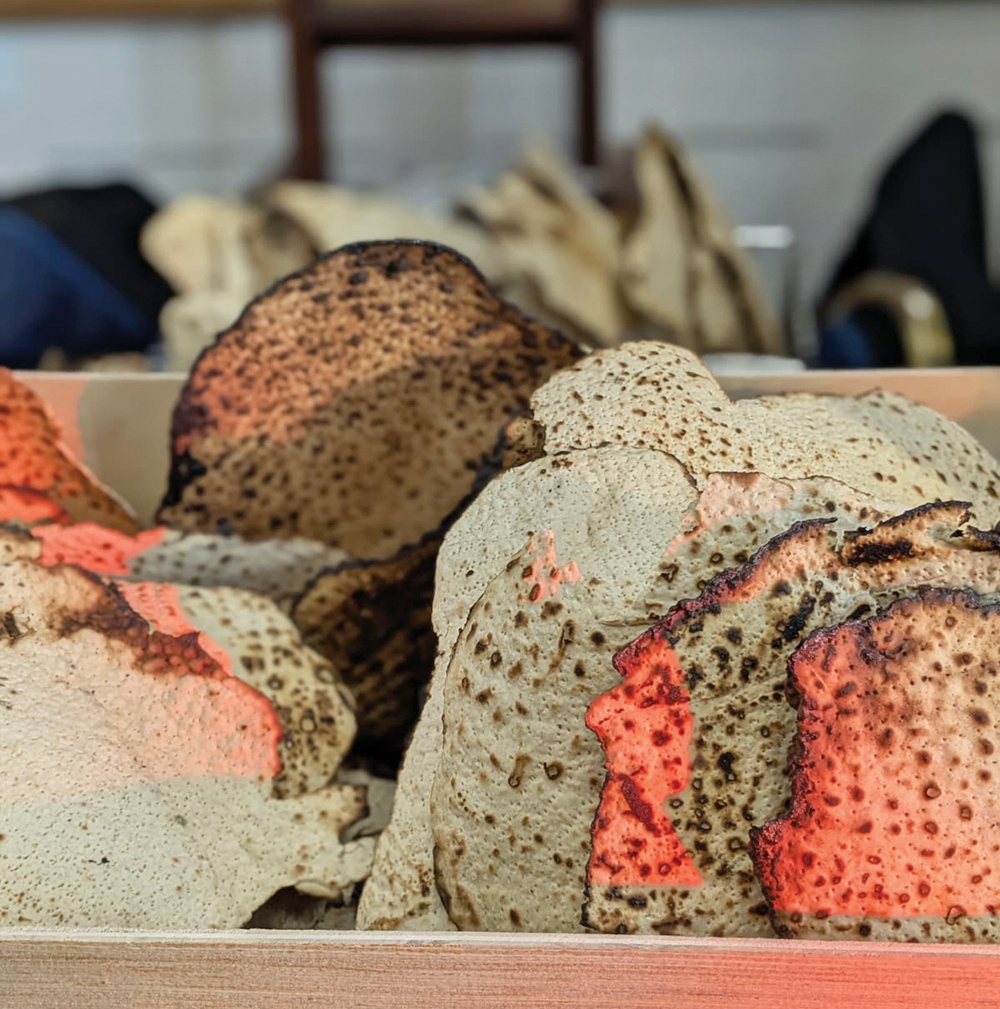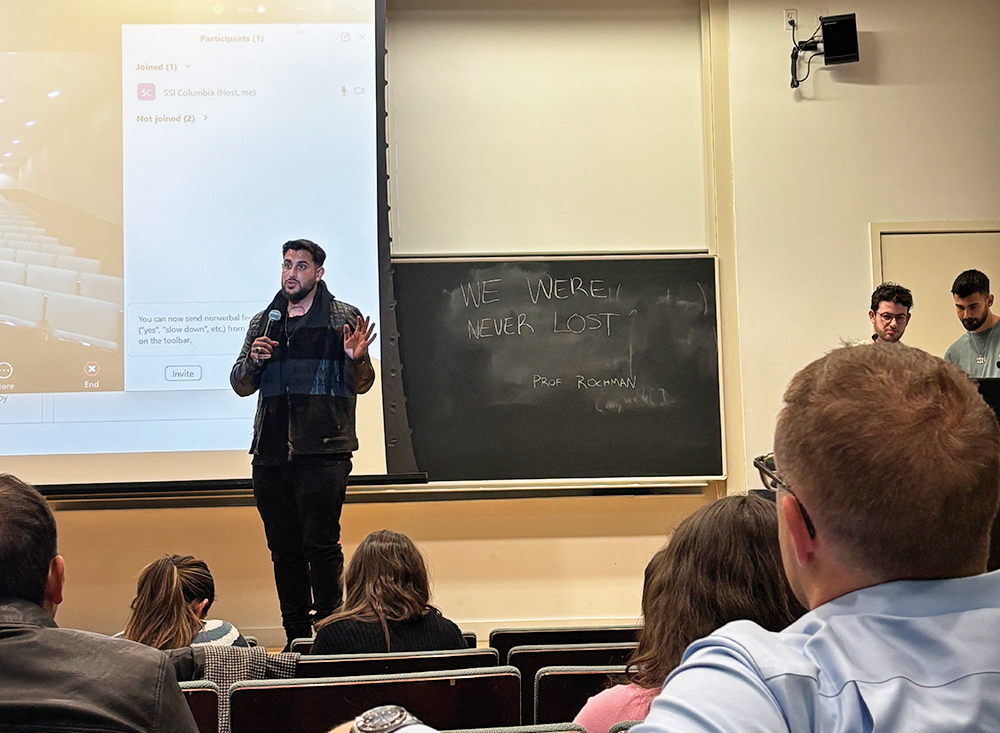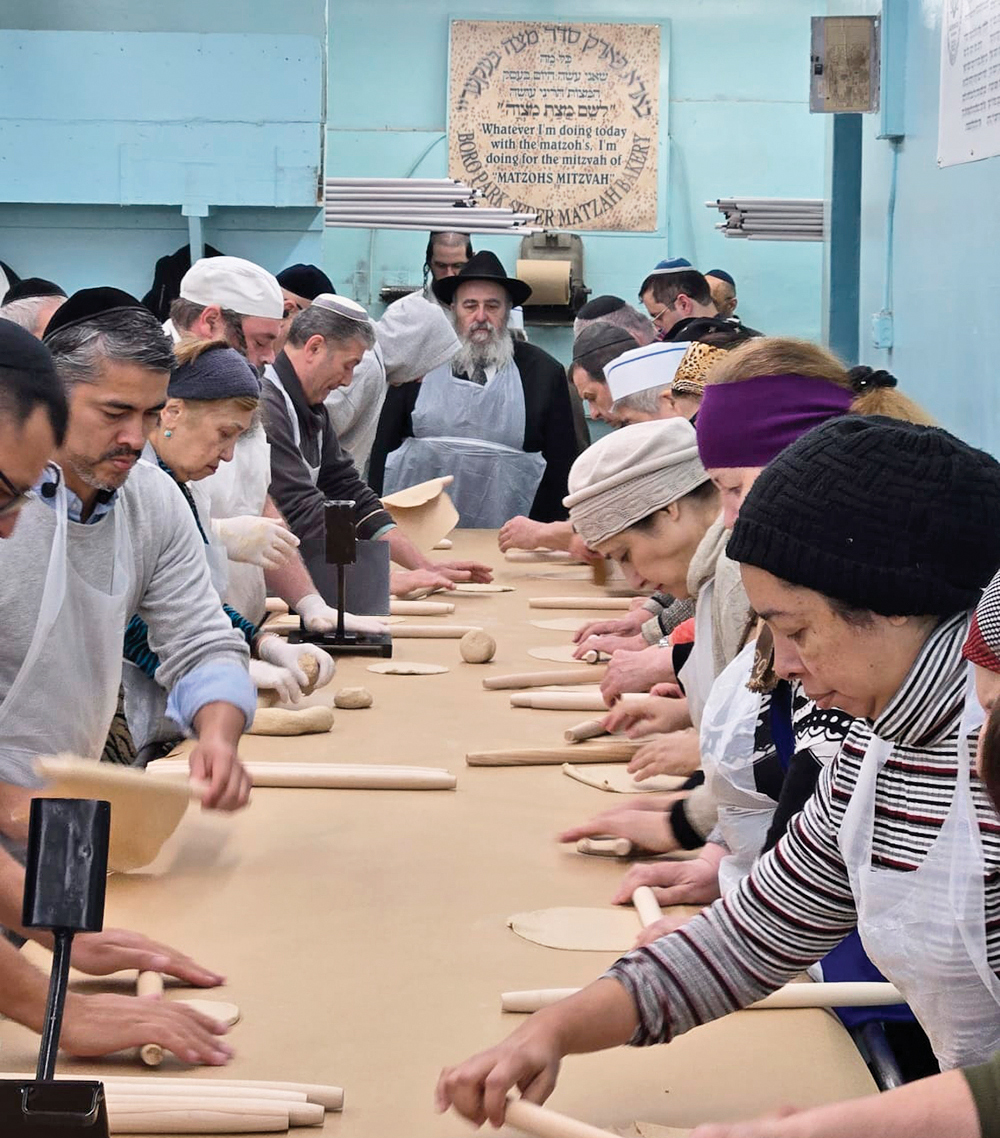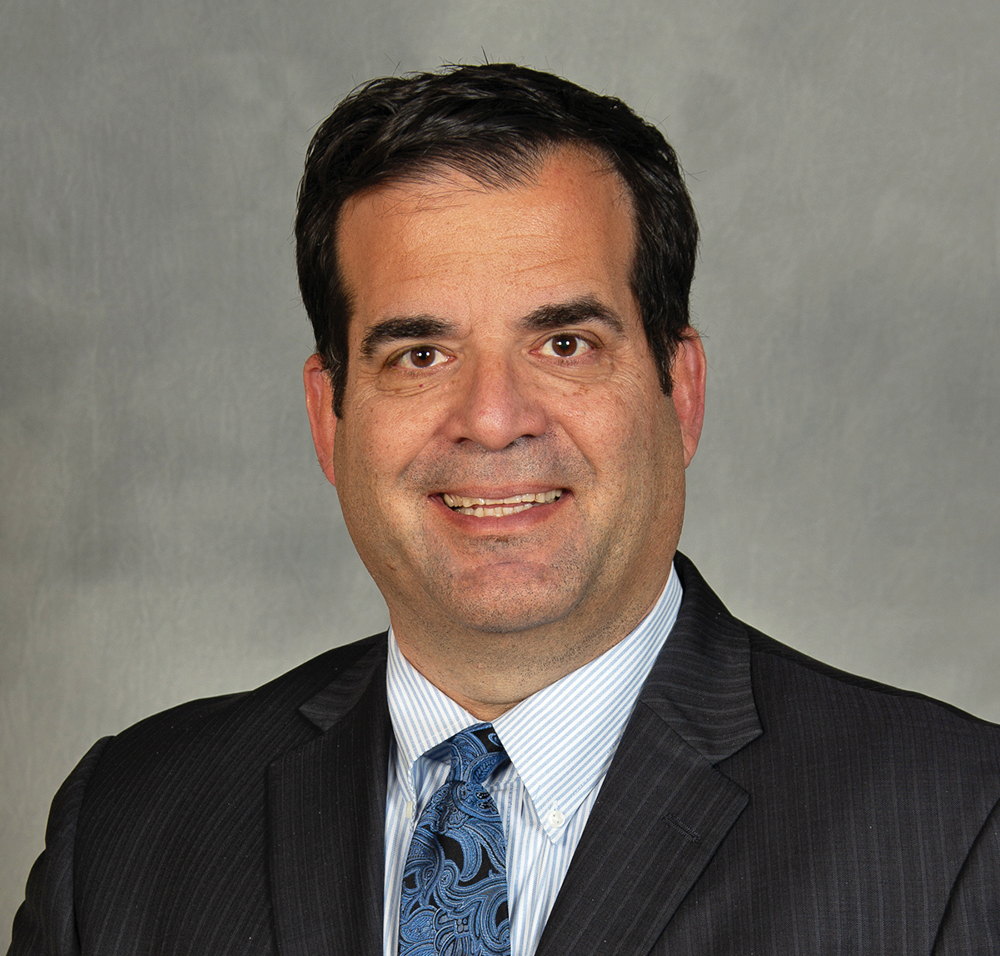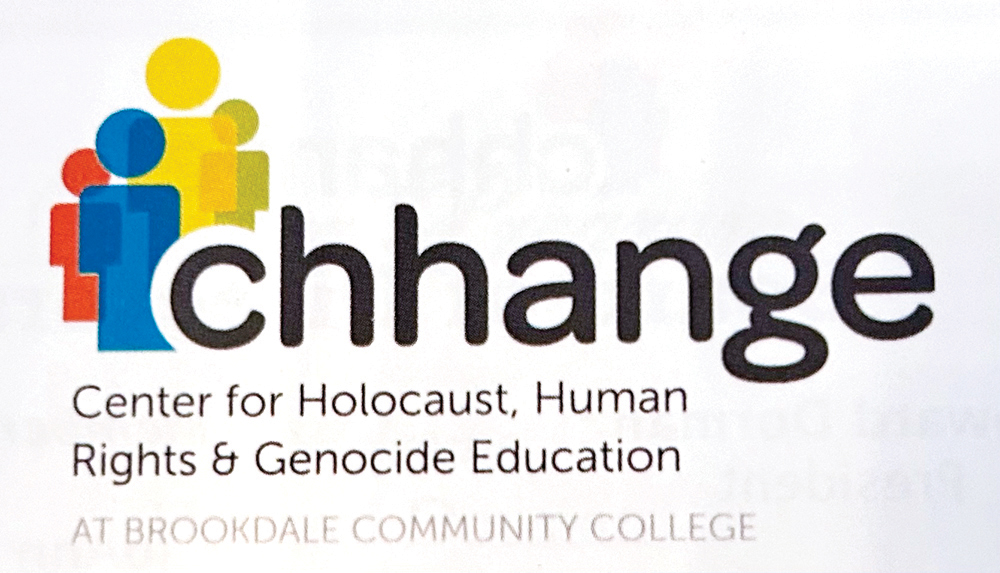
This Shabbat, Bergen County rabbis will ask their congregations to make technology use ‘intentional.’
It seems all working adults struggle to strike just the right balance between modeling good device usage for our children while also vigorously wielding our phones, tablets and computers to complete our work, our learning, our shopping and even our chesed projects. With screens it seems we can do everything better and faster, not to mention with a discount promo code or a digital coupon. With today’s impersonal yet efficient Tehillim WhatsApp groups, shiur apps and buy-it-on-Amazon-for-next-day-delivery, we often choose the text or click option over a phone call or an in-person conversation. The question of what we give up by replacing our real friendships with digital connectivity has not gone unnoticed by our communal leaders.
This Elul—and moving into Tishrei—the Rabbinical Council of Bergen County, in collaboration with Bergen County day school and yeshiva high school heads, has been meeting to discuss how their communities can better live, connected. “More than 30 shuls and 14 schools are coming together to think carefully about how we use technology in our lives,” said Rabbi Jonathan Knapp, head of school at Yavneh Academy.
“We are often entirely oblivious to the many ways technology dramatically impacts our lives and social interactions, let alone our relationship with Hashem. The goal of the [“Living Connected”] campaign is to call attention to technology’s impact on our lives and on our homes, and to consciously address it in a mentally and spiritually healthy way,” said Rabbi Elliot Schrier of Congregation B’nai Yeshurun.
While the rabbis and heads of school are quick to note they are not recommending pausing or eliminating technology use, they want to utilize our community’s admiration for and dependence on technology to both become more connected to one another and live more mindfully connected to Hashem. In fact, they all plan to collaboratively, yet individually, discuss the topic in their own Bergen County shuls this Shabbat, September 23 and 24.
“We want to encourage healthier methods for integration of technology while simultaneously promoting emotional well-being and healthy relationship building,” explained Rabbi Larry Rothwachs, of Congregation Beth Aaron.
As part of the Living Connected initiative, this past summer the RCBC invited the community to re-examine its relationship with screens, with an eye toward developing new societal norms that embrace technology in a deliberate and healthy way. Living Connected follows along with a Bergen County school heads project, “Screening Our Future,” which was a similar effort that was launched in fall of 2019 by the day school heads, but was forced to pause during the pandemic. One clear benefit of that conversation? “Three years ago, when the local day schools partnered together to raise this conversation with our students, we learned that we need to further engage parents in this discussion,” Rabbi Knapp explained. “It is our hope that parents will feel empowered to have family discourse around this nuanced topic and eventually adopt some family norms that will prove beneficial to all members of the family unit.”
School leaders will host a Tzom Gedaliah Yom Iyun next week, dedicated to technology awareness. Seventh and eighth graders from seven area yeshiva day schools will join together on Wednesday, September 28, to watch “Screenagers,” a documentary aimed at understanding the impact of our children’s increased connection to screens. The film will be followed by a Q&A and comment session moderated by RCBC rabbis.
“Screenagers,” which was made in 2016 by physician/filmmaker Delaney Ruston, uses a personal approach to highlight the vulnerable corners of family life, including her own, to explore struggles over social media, video games, academics, internet addiction and the need to place limitations of screen usage, which Ruston estimated at over 6.5 hours a day. “Recreational technology usage and limits is one of the most challenging parenting issues that our generation faces. And to be honest, most of us are failing this challenge,” said Rabbi Daniel Alter, head of school at The Moriah School.
“We embrace all the marvelous advances that cell phones have provided, including first and foremost, access to Torah study, opportunities to perform acts of chesed and chances to connect with friends and family. And, at the same time, we all recognize the challenges of inappropriate content, wasting of precious time and the damaging impact on one’s emotional health and psyche. Our children are living in this complicated and confusing space,” said Rabbi Knapp.
The Living Connected group has come up with a number of ideas, and particularly have learned—and seek to accentuate and validate—that everyone’s relationship to technology is different. No one can deny that technology all but saved us throughout the COVID-19 pandemic, providing a way for people to learn, work and even participate in special events. Technology allows us to communicate with each other more easily and connect with people far away. Technology also fosters creativity and enables advancements in many arenas. “But we also see that phones also get in the way. Everything we do, we want to do with balance,” Rabbi Beni Krohn, rabbi of Young Israel of Teaneck, recently told The Jewish Link.
“We’ve become so accustomed and habituated to having technology affect every dimension of our lives, that I don’t think we as a collective group have considered taking a step back and looking at technology from the outside in,” said Rabbi Zev Goldberg, rabbi of Young Israel of Fort Lee and the current RCBC president.
“Our hope is that initiatives such as this can begin to move the needle, even if just supporting those families who are on the fence and need a little chizuk (strength) to further limit, oversee and direct the technology usage of their children. In the long term the hope is that this number grows to a critical mass so that it is easier for other parents to make the right choices.”
As a meaningful part of the initiative to get everyone involved, the group is circulating a flyer in this week’s Jewish Link, suitable for bulletin boards and posting on refrigerators, that provides prompts for all community members of every age and stage—and families—to choose one action from an array of ideas that might assist an individual or family in “living more connected” in 5783. These choices can be tweaked as necessary and be made useful for the many different parshiot of life in which people find themselves.
The first option is to place a priority on one’s family. “I will create a 30-minute device-free time each evening to give my family my undivided attention,” suggests one option. This option is potentially designed for working parents of small children.
The second option is to place attention squarely on Hashem and yirat shamayim (fear of heaven): “I will put my phone out of sight when I daven and learn.” This idea might be suitable for a full-time college or yeshiva student, or any student who finds himself or herself distracted by blips and rings from phones.
The third option would be to focus on oneself and one’s own relationship to social media. “I will create a healthy plan for what social media I consume and when I consume it and/or I will keep my phone out of my room overnight while I sleep.” This is an idea that is often discussed with tweens, teens and first-time internet users, who often expose themselves to inappropriate content through constant or unfiltered internet use.
Fourth, building on one’s community, particularly for those active on social media, in chat groups or those who make comments often on Facebook or other sites: “I will pause for five seconds before posting my opinion on social media to consider my impact on others,” suggest the rabbis.
So this Rosh Hashanah, our local rabbis are asking the community to take a step back and choose one of the options, or develop one of your own. “Put the flyer on your fridge, designate a time to discuss it with your family, and let’s just talk about small steps to develop a more balanced use of technology,” said Rabbi Krohn.
The RCBC and school heads would be appreciative of all feedback, and are available at livingconnectedbc@gmail.com. Letters to the editor are, as always, welcome at editor@jewishlink.news.
By Elizabeth Kratz


